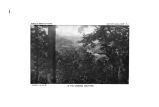| OCR Text |
Show 52 MYTHS OF THE CHEROKEE [ ETH. ANN. 19 party of Indians was surrounded and entirely cut off. u Sixteen were found dead in the valley when the battle ended. These our men scalped." In a personal encounter " a stout Indian engaged a sturdy young white man, who was a good bruiser and expert at gouging. After breaking their guns on each other they laid hold of one another, when the cracker had his thumbs instantly in the fellow's eyes, who roared and cried 4canaly^- enough, in English. ' Damn you,' says the white man, 4you can never have enough while you are alive.' He then threw him down, set his foot upon his head, and scalped him alive; then took up one of the broken guns and knocked out his brains. It would have been fun if he had let the latter action alone and sent him home without his nightcap, to tell his countrymen how he had been treated." Later on some of the same detachment ( Williamson's) seeing a woman ahead, fired on her and brought her down with two serious wounds, but yet able to speak. After getting what information she could give them, through a half- breed interpreter, " the informer being unable to travel, some of our men favored her so far that they killed her there, to put her out of pain." A few days later " a party of Colonel Thomas's regiment, being on a hunt of plunder, or some such thing, found an Indian squaw and took her prisoner, she being lame, was unable to go with her friends. She was so sullen that she would, as an old saying is, neither lead nor drive, and by their account she died in their hands; but I suppose they helped her to her end." At this place- on the Hiwassee- they found a large town, having " upwards of ninety houses, and large quantities of corn," and " we encamped among the corn, where we had a great plenty of corn, peas, beans, potatoes, and hogs," and on the next day " we were ordered to assemble in companies to spread through the town to destroy, cut down, and burn all the vegetables belonging to our heathen enemies, which was no small undertaking, they being so plentifully supplied." Continuing to another town, " we engaged in our former labor, that is, cutting and destroying all things that might be of advantage to our enemies. Finding here curious buildings, great apple trees, and white- man- like improvements, these we destroyed." * While crossing over the mountains Rutherford's men approached a house belonging to a trader, when one of his negro slaves ran out and " was shot by the Reverend James Hall, the chaplain, as he ran, mistaking him for an Indian." 8 Soon after they captured two women and a boy. It was proposed to auction them off at once to the highest bidder, and when one of the officers protested that the matter should be left to the disposition of Congress, " the greater part swore bloodily that if they were not sold for slaves upon the spot they would kill and 1 Row Journal, in Historical Magazine, October, 1867. 2 Swain, Sketch of the Indian War of 1776, in Historical Magazine, November, 1867. |































































































































































































































































































































































































































